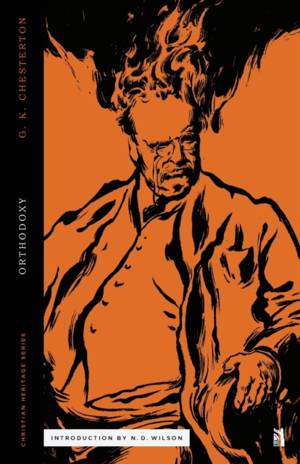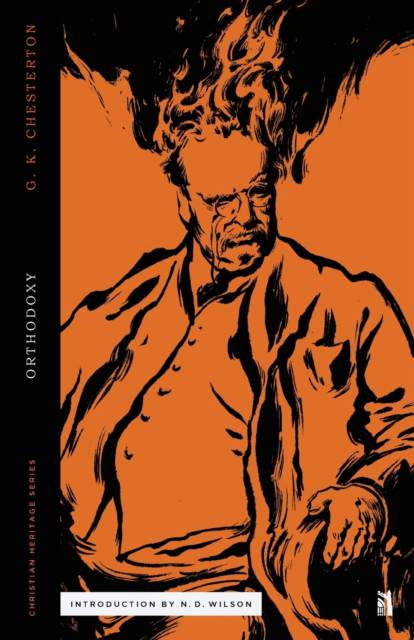
- Retrait gratuit dans votre magasin Club
- 7.000.000 titres dans notre catalogue
- Payer en toute sécurité
- Toujours un magasin près de chez vous
- Retrait gratuit dans votre magasin Club
- 7.000.0000 titres dans notre catalogue
- Payer en toute sécurité
- Toujours un magasin près de chez vous
Description
" Orthodoxy, the book in your hands, came to me after I had already come to understand and love the clarity of Reformed theology. When Chesterton arrived in my intellectual scene, it was like flipping an extra breaker in my soul that turned on the party lights, brought out the dancers, and cued the music.... Orthodoxy is Chesterton's greatest book, and the greatest gift in this book is deep joy. This is not a trivial, superficial joy, but a profound joy in the world which we have been given, a joy powered by gratitude to the sparkling, joyous, God who gave us this uproarious existence." From N.D. Wilson's introduction, Adapted from N.D. Wilson's Grace Agenda seminar 'Chestertonian Calvinism'
In this brilliant book, the enormously fat and jolly G.K. Chesterton gives a stirring defense of Christianity. Chesterton fought against the reductionist materialism with laughter, joy, and gratitude for the beauty of the world God has given us. We usually think of orthodoxy and the tenets of the Christian faith as dry, arbitrary, and perhaps even nonsensical. Chesterton shows that orthodoxy is beautiful and fits perfectly the strange, quirky world. For those of us who do not pay any attention to the strangeness of the world, this book is essential reading. The world may not have fairies, but it does have the sun, rivers, trees, and the sky, and they are as strange as anything we will find in a fairy tale. Read this book, then go outside and marvel.
"Because children have abounding vitality, because they are in spirit fierce and free, therefore they want things repeated and unchanged. They always say, 'Do it again'; and the grown-up person does it again until he is nearly dead. For grown-up people are not strong enough to exult in monotony. But perhaps God is strong enough to exult in monotony. It is possible that God says every morning, 'Do it again' to the sun; and every evening, 'Do it again' to the moon. It may not be automatic necessity that makes all daisies alike; it may be that God makes every daisy separately, but has never got tired of making them. It may be that He has the eternal appetite of infancy; for we have sinned and grown old, and our Father is younger than we." From Chesterton's Orthodoxy
Spécifications
Parties prenantes
- Auteur(s) :
- Editeur:
Contenu
- Nombre de pages :
- 194
- Langue:
- Anglais
- Collection :
Caractéristiques
- EAN:
- 9781952410482
- Date de parution :
- 01-07-20
- Format:
- Livre broché
- Format numérique:
- Trade paperback (VS)
- Dimensions :
- 140 mm x 216 mm
- Poids :
- 231 g

Les avis
Nous publions uniquement les avis qui respectent les conditions requises. Consultez nos conditions pour les avis.






